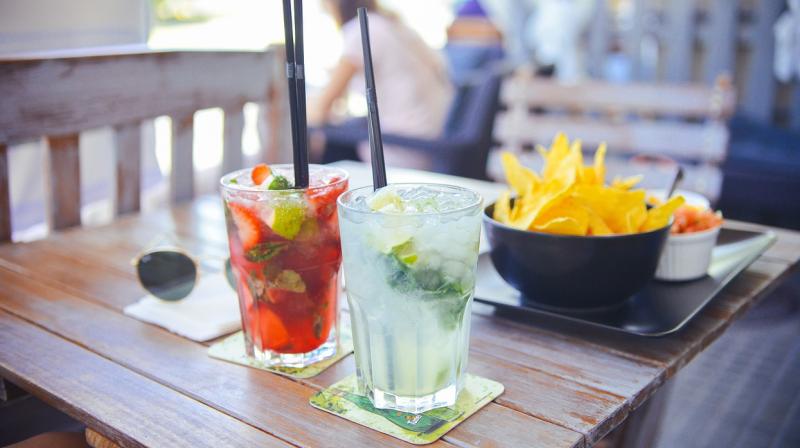Seaweed and ants among new ingredients used in gin in UK

Seaweed, rhubarb, Christmas pudding and even ants - all ingredients used by a new generation of gin makers enjoying a booming British market.
That demand for left-field versions of the once traditional spirit has been a gift for Scottish whisky makers, including some new players that have anchored their business with gin revenues while waiting for the Scotch to mature.
Gin can be produced in about a week whereas whisky takes at least three years, but the equipment needed to make them -- alcohol stills -- are the same. Scotland, more famous for whisky, also makes about seventy percent of the gin consumed in the UK, and produces its three leading brands.
"It's essentially the same thing. You track whisky back and its root is basically gin," said Tony Reeman-Clark, who set up his Strathearn distillery in Perthshire in 2013 with about 250,000 pounds in financial backing via friends, family and a loan.
While waiting for his whisky, Reeman-Clark has made, among others, an after-dinner gin to be sipped neat, matured with the stave of a whisky barrel in it for flavor.
"People have changed," he told Reuters.
"They will go out and have two drinks for the flavor. They want the story behind it, the drink is distinctive, it's unique and there is a quality to it."
There has been a surge in small artisan distilleries in the UK, and of 250 of them almost 100 have opened in the last two years.
"It's well known, there is always a market for gin and you could see it was starting to change because people were bored with the big-boy gins," he said.
The amount of gin being drunk in bars grew 14 percent by volume and 19 percent by value in the year to Oct. 1, according to the wine and spirits trade association.
But whisky sales in the UK are still worth more than twice those of gin. The overall British spirits market is growing at 3 to 4 percent annually, ahead of overall economic growth of about 2 percent.
This week Reeman-Clark finally sealed his first 100 bottles of whisky which are three years and a day old. The first half liter of it sold in an online auction for 4,150 pounds to a collector of special whiskies.
Other producers such as the Harris Distillery in the Hebrides, at the northwestern tip of Britain, and the Cotswold Distillery in the heart of rural England, are doing essentially the same thing, producing quality gins which are distinctive while they wait for whisky.
"In general consumers are more educated," said Humphrey Serjeantson, head of research at IWSR research body.
"Brands like Gordons are still popular but it is losing share to those coming in. The question is how long the newcomers can last."

